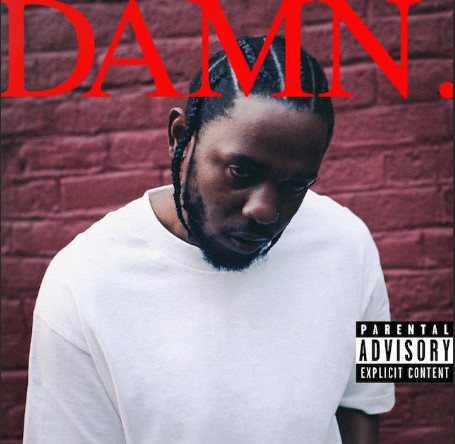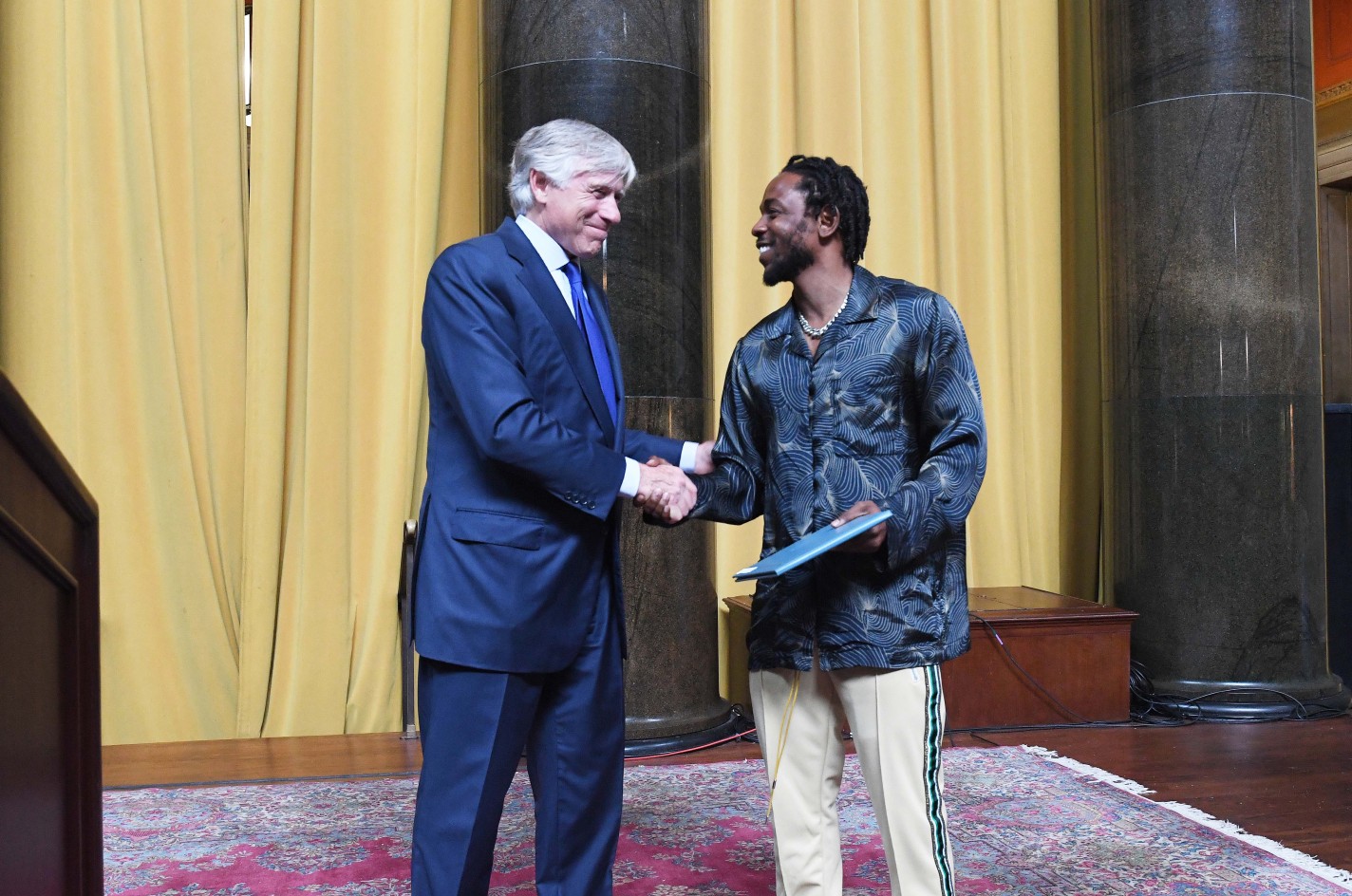
“Hail Mary, Jesus and Joseph/ The great American flag is wrapped and dragged with explosives/ Compulsive disorder, sons and daughters/ Barricaded blocks and borders/ Look what you taught us.”- Kendrick Lamar, DAMN, XXX
Last Friday, April 19th, our class was organized into different groups, all consisting from about four to five students each. We were asked to begin brainstorming a key, interdisciplinary term that would remain the focal point—or at least be the basis—for our self reflective essay. As we began THINKing and bouncing ideas off of each other, words quickly began soaring across the room from verbs “change” and “explore,” to terms like “nonlinearity,” “folk,” “organization” and my very own: self-autonomy. The idea behind my choice of word at first glance appeared simple: reclaiming something that might be seen as inherently negative by reconstructing the detrimental and harmful connotations attached to an idea, word or event by regenerating it into something dynamic, positive, powerful, and empowering. I automatically began thinking about the Baby Dolls in our required course text, Walking Raddy: The Baby Dolls of New Orleans, and how courageous and tenacious the women were in creating a space of their own to share in their community during the Jim Crow era. A space that would not only be their own, but an area in which they could unite through art, creativity, motion, self-individuality and self-expression. Building and embedding the word into my self-reflective essay however, was another story but at least the idea and thought was there, and that for me, was enough for now.
As my witty classmates began explaining the ideas behind their very own choice of words, we began talking about music, specifically Black artists. The conversation swiftly became more serious as we began considering the importance of Black culture and history in not only the music industry but in many of the 21st century music and media we listen to now. We reminisced over the evolution of rhythm, storytelling and who we consider a significant artist figure in our communities. As if out of mere intuition, my mind automatically led me to rapper Kendrick Lamar and the controversy that followed after his winning of the 2018 Pulitzer Prize in music.

(Kendrick Lamar accepting the 2018 Pulitzer Prize in music)
The Pulitzer Prize, awarded for exceptional talents and ability in magazine, journalism, literature, newspaper and musical composition in the United States, is easily if not surely, one of the most prestigious awards any writer can receive. Lamar, a distinguished Platinum-selling, Grammy-nominated rapper, took home the Pulitzer Prize home along with the $15,000 cash reward, for his record DAMN—which was released on April 14, 2017— becoming the first non-classical or jazz artist to receive the eminent award. The controversy that followed however, was rooted in precisely this factor: Lamar is a rapper, and many critics believed that his vulgarity and use of the “n” word wasn’t deserving of the award. Many of course, including myself, came to the defense of the rapper because we recognize the power of his work and of his influence among communities of color. Lamar is an artist and an important one for that matter. Through his work, he is able to capture the narrative of what it means to grow up in America as an African-American. He is authentic, intimate, raw and real, allowing him to beautifully capture the essence of blackness, self-worth, the danger of street-life, survival and of coming of age. It comes to no surprise that he has been able to become what The Associated Press best puts into words as “the voice of the generation.” Just like Steve Prince, Lamar is able to delve into the issues of social and economic disparities, violence, racism and death through his art, all while encapsulating the emotions of anger, vulnerability, frustration and exhaustion in a way that is not only enthralling, poetic and empowering but urgently significant.
Just as I articulated in my last blog post titled: A New Kind of Stank, My Own Kinda Stank ft. a Lil Bit of Magic, there is a crucial need for inclusivity in the world of refined academics and studies. There needs to be a voice for those who have continuously felt silenced, underrepresented and ignored. Kendrick Lamar offers a voice for those who have never felt spoken to, kids like Kiese Laymon’s City, kids with “fucked-up English” (Laymon’s words, not mine); Lamar gives these kids a front row seat. Chinese-born artist Du Yun said “Freedom of expression is the height of art, and Kendrick Lamar is the embodiment of that freedom” and I couldn’t possibly agree any more strongly.
